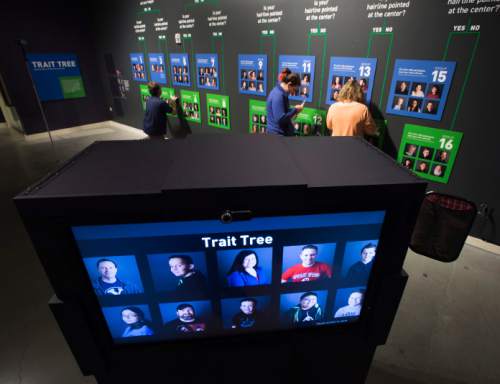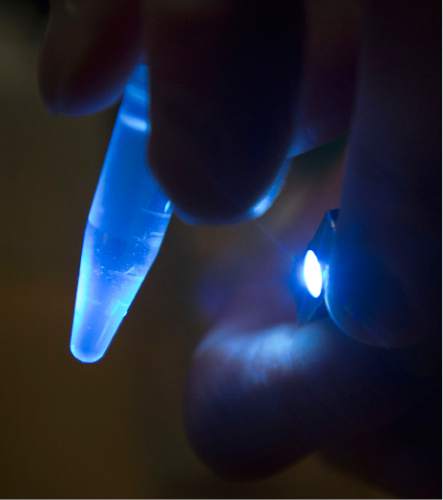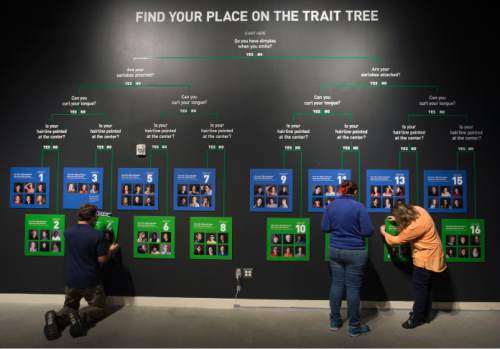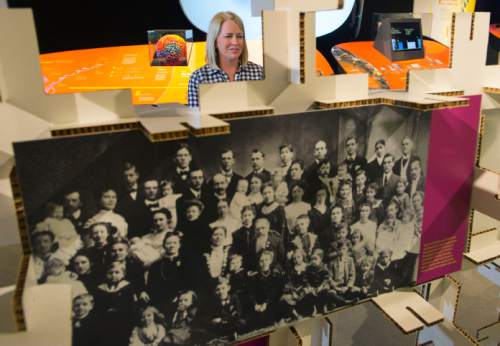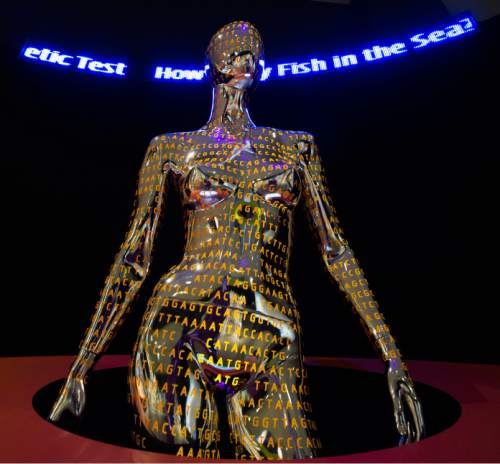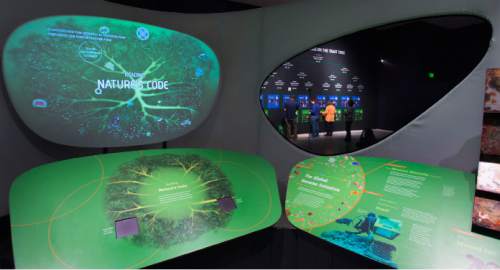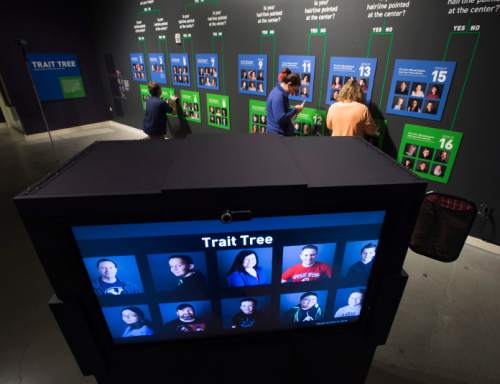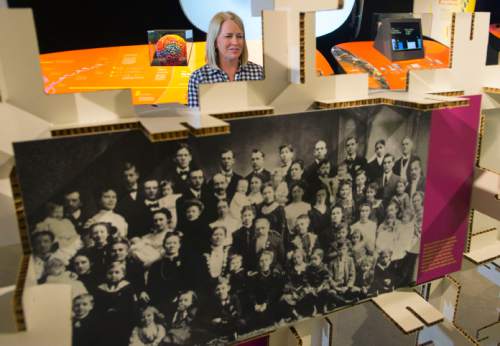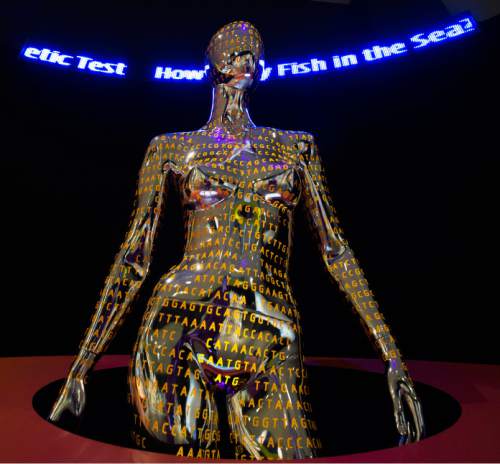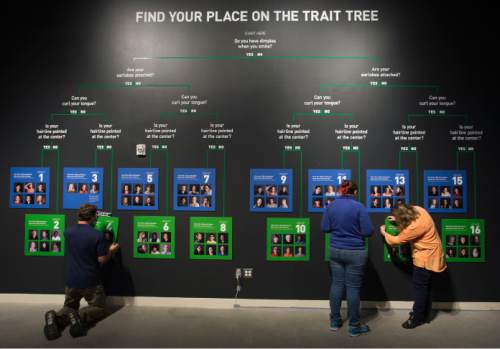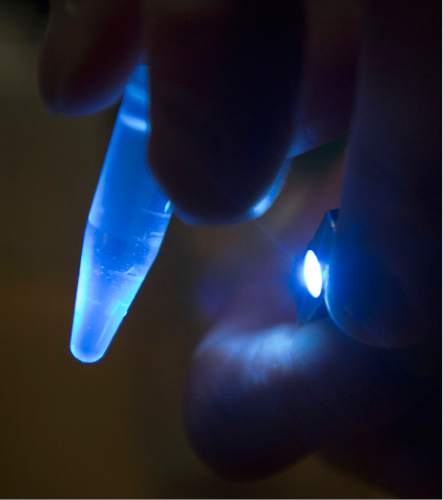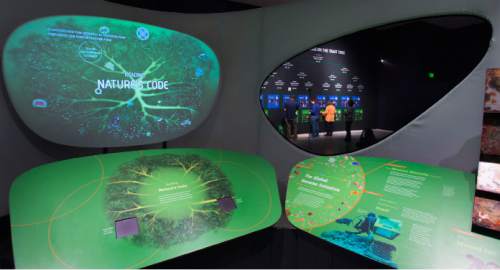This is an archived article that was published on sltrib.com in 2016, and information in the article may be outdated. It is provided only for personal research purposes and may not be reprinted.
Utah's large extended families and their knack for keeping expert genealogy records may seem curious to those outside the state, but collectively they have helped researchers crack the mysteries of disease-causing genes.
The Beehive's big family phenomenon is among the highlights of "Genome: Unlocking Life's Code," an exhibit that opens Saturday at the Natural History Museum of Utah's Rio Tinto Center.
The Utah component and the larger traveling exhibit — developed by the Smithsonian Museum of Natural History and a division of the National Institutes for Health — continues through Sept. 5. Entrance is included in the museum's price of general admission. (See box.)
The exhibit offers an approachable lesson in "DNA 101" and helps explain ongoing genetic research that "will change our lives in ways we can only imagine," said Lisa Thompson, museum exhibit developer.
"It's an exhibit about each one of us," she added. "Our genes offer a lens that looks back into our shared past, forward into our future health and out into the world and our shared connection to every living thing on Earth."
"Genome: Unlocking Life's Code" has several interactive components — the most interesting involves swishing saline solution in your mouth and spitting it into a plastic tube. The cheek swipe is then mixed with dish soap and gently shaken. The process forms tiny crystals in the solution, which are isolated strands of DNA.
Other components of the exhibit include "Reading Nature's Code," where guests can learn about the genetic traits of different animals; and a Family Trait Tree featuring Utahns who share similar traits such as dimples, attached ear lobes, widow's peaks, and the ability to curl one's tongue. Visitors can add their own information and photo to the database.
There also is information about the next phase of cutting-edge research that has revolutionized disease prevention and health care, and videos that tell the stories of real people, including Utahns, who have been helped by gene research.
Emily Scalley, of Salt Lake, is a member of one of those families, in which several generations were diagnosed with some form of cancer. A genetic test showed that four of Scalley's five siblings had Lynch syndrome, a genetic condition that has a high risk of colon and other cancers.
While initially the news was shocking, Scalley said over time it has helped the family talk about health issues and become more diligent about cancer screenings and prevention. "We have felt empowered by it and ahead of the game," she said.
There also is information about Utah Population Database, which contains 8 million people and 22 million health records. Several years ago, the database helped a team of University of Utah scientists discover the BRCA1 and BRCA2 gene mutations that cause breast and ovarian cancer.
Lisa Cannon-Albright, one of those pioneering researchers, said there was a unique set of factors that helped with those discoveries. "We had pioneering researchers at the U. with the foresight to link cancer to genetics," she said. (Before that, people thought it was tied only to external forces like smoking cigarettes.) "And a population willing to help."
Unlike other states, where there is a hesitation to participate in studies, "Utahns never say no," she said. "People in Utah really care about their ancestors."
Unlocking the genetic code
P "Genome: Unlocking Life's Code" is a traveling exhibit, with a Utah component, that explores how scientists have unlocked the mysteries of the human genome. Entrance to the exhibit is included in museum admission.
Where • Natural History Museum of Utah at the Rio Tinto Center, 301 Wakara Way, Salt Lake City
When • Opens Saturday and runs through Sept. 5
Cost • $13; young adults (13-12) and seniors (65+), $11; children 3-12, $9. Children 2 and younger, museum members and University of Utah faculty, staff and students, free with identification.
Details • nhmu.utah.edu/genome or 801-581-4303


